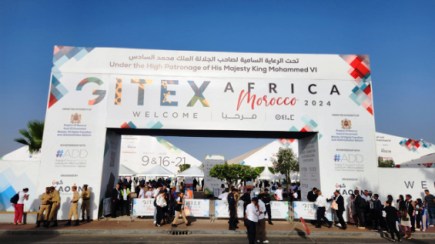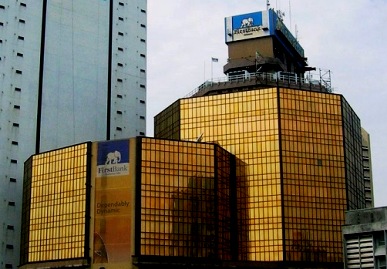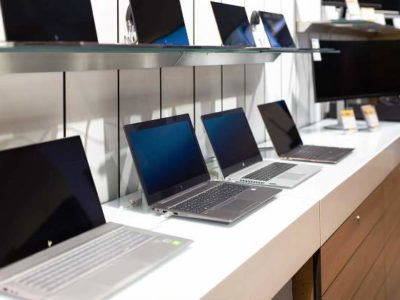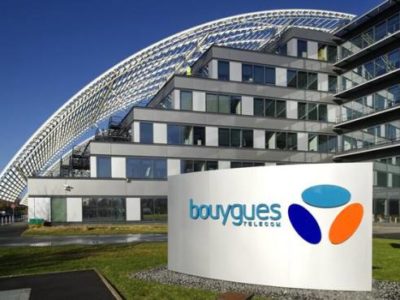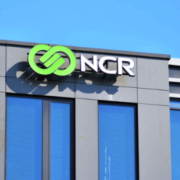By Engr. Gbolahan M.A. Alabi-Isama MS. Founder/CEO at Supercomafrica
The resounding success of GITEX Africa in Morocco isn’t just another tech conference; as Morocco’s Minister of Digital Transition and Administration Reform, Amal El Fallah Seghrouchni, astutely pointed out, it’s a powerful testament to the burgeoning prominence of Africa’s digital economy. This isn’t a whisper; it’s a clear announcement to the world: Africa is a digital force on the rise.
RELATED: GITEX Africa 2025: NITDA, SecDojo ink MOU to advance Nigeria’s cybersecurity and digital talent development
Occasionally, at GITEX Africa, the atmosphere pulsates with the energy of innovation. Entrepreneurs pitch groundbreaking ideas, investors scout for the next unicorn, collaborations spark across borders, and governments explore policies to foster digital growth. This year’s edition, held under the high patronage of His Majesty King Mohammed VI, was no exception, drawing leading figures from across the local, regional, and global digital landscapes to Marrakech.

Digital economy now accounts for 15% of global GDP
The inaugural ceremony itself served as a powerful announcement of Africa’s digital ambitions. Minister El Fallah Seghrouchni’s revelation that the digital economy now accounts for a staggering 15% of global GDP – a colossal $6.5 trillion – underscores the immense potential that lies within the continent. Morocco, recognizing the transformative yet challenging nature of this digital revolution, has firmly positioned itself to pioneer a future where digitalization and Artificial Intelligence (AI) are not just buzzwords, but genuine catalysts for societal progress.
Adding to this sentiment, Mohammed Drissi Melyani, Director General of the Digital Development Agency, rejected any notion of GITEX Africa being a mere showcase. Instead, he emphasized its evolution into a “strategic arena” – a crucial platform for fostering digital inclusion across African nations, forging vital partnerships with global stakeholders, and accelerating the much-needed sustainable digital transformation of the continent.

Adding to the chorus of optimism, Trixie LohMirmand, CEO of KAOUN International, the driving force behind GITEX events globally, emphasized Morocco’s strategic positioning as a transformative epicenter for AI across the continent. GITEX Africa Morocco, she asserted, is more than just a display of cutting-edge technology; it’s a “dynamic catalyst” fueling collaboration, attracting crucial investment, and fostering significant growth.6 It’s about connecting Africa’s brightest minds with global markets and empowering the next generation to confidently lead the AI-driven economy.
GITEX AFRICA Morocco 2025: A broader agenda
Building on this momentum, the announcement of the 2025 edition of GITEX AFRICA Morocco promises an even broader agenda, welcoming new participants from diverse nations across Africa, Europe, and Asia. This expansion signifies the growing international recognition of Africa’s digital potential. Beyond the core focus on AI, cybersecurity, and telecommunications, the event is intelligently adapting to encompass critical sectors such as energy transition, mobility, edutech, sports technology, and agritech – demonstrating a holistic understanding of the digital ecosystem’s pervasive influence.

And in a move that brings a pleasant surprise and further solidifies Africa’s growing digital prowess, Nigeria has secured the bid to host its very own premier global tech event, GITEX Nigeria, slated for September 2025. This significant announcement, made by the Director-General of the National Information Technology Development Agency, Kashifu Abdullahi, at GITEX Africa in Morocco, signals Nigeria’s decade-long commitment to integrating more deeply with the global tech ecosystem and amplifying local innovation. With expectations of attracting over 1,000 startups and international investors to Abuja and Lagos, GITEX Nigeria promises to be a pivotal moment in the nation’s digital journey.
GITEX NIGERIA: Democratizing access to global opportunities
Abdullahi astutely pointed out that hosting GITEX at home will democratize access to global opportunities for Nigerian startups, students, and innovators, offering them direct engagement with international investors and partners. He also highlighted Nigeria’s youthful demographic as a key asset in shaping its digital future, emphasizing the government’s commitment to embedding digital skills in education and positioning Nigeria as a talent-exporting nation.
LohMirmand, speaking on this exciting partnership, dismissed the notion of simply creating a “show.” Instead, she emphasized KAOUN’s commitment to forging and strengthening local ecosystems by intelligently connecting them with global innovation networks – acting as the “machine that connects” Nigeria’s vibrant startup scene with the rest of the world.
African startups and SMEs must benchmark themselves globally
Her insightful observation that “no country or city can operate in isolation, especially as the AI economy grows,” underscores the critical importance of international collaboration – a key takeaway from the vibrant atmosphere typically witnessed at GITEX Africa. African startups and SMEs, she stressed, must benchmark themselves globally to thrive in this emerging AI-driven landscape.
In conclusion, GITEX Africa serves as a powerful beacon, illuminating the continent’s rapid digital ascent. It’s a dynamic platform where ambition meets opportunity, where African innovation takes center stage, and where strategic partnerships are forged to shape a brighter, digitally empowered future for the continent. The surprise announcement of GITEX Nigeria further solidifies this momentum, signaling a new era of collaboration and growth within Africa’s thriving tech ecosystem. The digital dawn has broken, and Africa is ready to shine.

